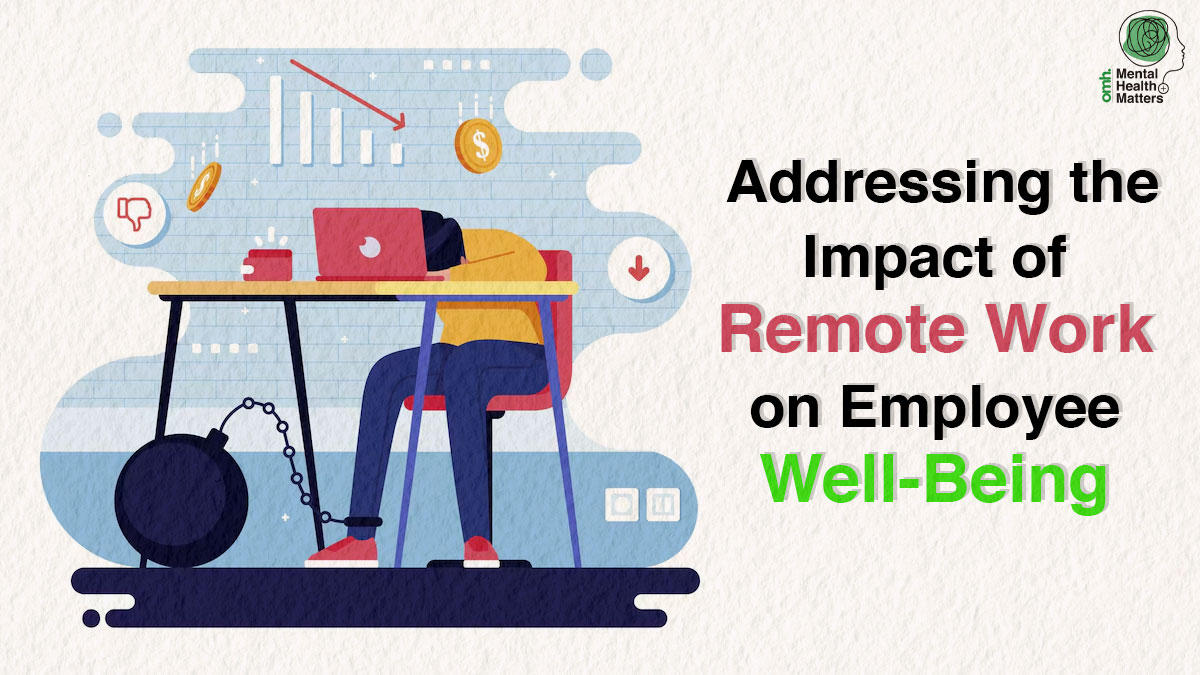Working from home has become a norm for many, offering a break from traditional office routines, but it also brings its own set of challenges. Without the usual office buzz or face-to-face interactions, remote employees can feel disconnected and struggle with maintaining a healthy work-life balance. The pressure to always be “on” can lead to burnout, and the lack of in-person support may make it harder to cope with stress. On this “World Mental Health Day,” which focuses on the theme of “Mental Health at Work,” we reached out to our expert Dr Samant Darshi, Consultant Psychiatrist and Director, Psymate, Noida, to explore these challenges and discuss strategies for maintaining mental health.

According to a 2023 study, Working From Home (WFH) refers to a scenario where employees primarily perform their duties from home, often relying on digital communication methods, such as email, video conferencing, and mobile phones to interact with their employers and colleagues. This substantial change in the work environment can alter the health and well-being challenges faced by many workers, highlighting the responsibilities of employers to support employee wellness in their home settings. It also implies a shift in the future role of occupational health nurses in addressing both the positive and negative health effects on employees.
The Mental Health Impact of Remote Work

“Remote work can have a mixed impact on mental health. While remote work provides flexibility and promotes a better work-life balance, it can also foster feelings of isolation, burnout, and difficulty separating work from personal life. The lack of in-person interactions may affect collaboration and social support, further impacting mental well-being,” said Dr Darshi.
A 2024 study pointed out that shifts in working conditions, feelings of isolation, and monotony from the absence of face-to-face interactions can lead to a sense of being overlooked by the company, career stagnation, and difficulties in balancing personal and professional life. These factors pose significant challenges that contribute to various negative effects on workers’ psychological health.
Additionally, the technical issues frequently encountered by remote workers, such as internet connectivity problems, difficulties accessing company servers, or inadequate ergonomic setups can further heighten anxiety, stress, and emotional exhaustion.
Also Read: Crushed By Careers: The Silent Mental Health Struggles at Work
The Role of Employers in Supporting Remote Employees
Employers play a crucial role in supporting remote employees. They can implement strategies that promote mental well-being, ensuring that their teams remain engaged and productive. Dr Darshi suggests several approaches that companies can adopt:

- Regular Virtual Check-Ins: Maintaining communication is essential for remote employees. Regular virtual check-ins can help managers stay informed about their team’s well-being and any challenges they may face.
- Encouraging Work-Life Boundaries: Employees need to maintain a separation between work and personal life. Employers can promote flexible hours or encourage employees to set specific work hours to enhance work-life balance.
- Mental Health Resources: Providing access to mental health resources, such as counselling or wellness programs, can help employees cope with the unique stresses of remote work.
- Creating an Open Environment: Fostering a culture of open communication encourages employees to express their concerns and seek help when needed. A supportive work environment can significantly impact employee morale and mental health.
Blurring Boundaries and Burnout
Remote work has transformed the way employees manage their time and tasks, offering autonomy and eliminating the stress of commuting. However, the blurring of boundaries between work and home life can contribute to challenges in time management, leading to extended work hours and eventual burnout.
“The physical absence of colleagues can also lead to feelings of loneliness, reducing opportunities for spontaneous collaboration and team bonding. Furthermore, the constant use of digital tools for communication can result in ‘Zoom fatigue,’ leading to an increased cognitive load and difficulty focusing on tasks,” said Dr Darshi.
Also Read: Feeling Emotionally Drained? Here’s How To Recognise An Emotional Hangover
Practical Solutions for Maintaining Mental Health
To help remote employees navigate these challenges and maintain their mental health, Dr. Darshi offers several practical solutions:

- Encourage Regular Breaks: Promote the importance of taking breaks to recharge and avoid burnout.
- Provide Ergonomic Support: It is essential to promote the importance of taking breaks to recharge. Short, regular breaks can help employees avoid burnout and maintain productivity throughout the day.
- Establish Clear Expectations: Set clear guidelines regarding availability and workload to help employees manage their time effectively.
- Mental Health Days: Allowing employees to take designated mental health days can give them the time they need to focus on their well-being, reducing stress and preventing burnout.
- Team-Building Activities: Organise virtual or in-person team-building events to foster connection and collaboration among remote employees.
- Access to Counselling Services: Provide resources for professional counselling and mental health support to assist employees in managing stress.
- Foster a Supportive Culture: Create an open and connected remote work environment that prioritises productivity and mental health.
[Disclaimer: This article contains information provided by an expert and is for informational purposes only. Hence, we advise you to consult your own professional if you are dealing with any health issues to avoid complications.]

